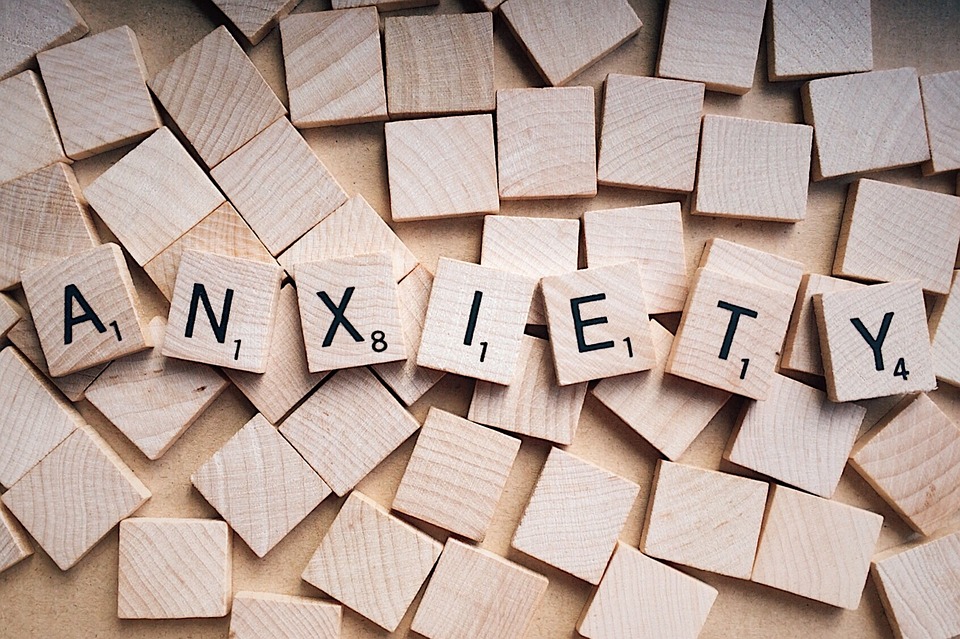
Types Of Anxiety Disorders: What They Are And How To Treat Them
Does it ever feel like you’re not in control of your own life? It’s as if you have a demon inside you that can never be happy, right? That’s what it feels like for people with anxiety disorders. For them, every day is a battle against an invisible enemy. Anxiety can make everyday activities impossible, from going to work, talking to friends, and even leaving the house.
But does everyone suffer from the same type of anxiety? Not really.
It turns out that there are several different types of anxiety disorders, each with its own set of symptoms. It’s important to understand the category you fall into before you can start seeking out treatment.
Below is a list of the various types of anxiety disorders. Consider seeking help from a professional if you can relate to any of them.
Generalized Anxiety Disorder:
Do you find yourself sweating about everything all the time? That’s what it’s like to suffer from generalized anxiety disorder (GAD).
People with GAD are constantly on edge. They might fret about everything, including their jobs, families, health, and the world. If you’re struggling with concentrating at work or tossing and turning at night because your mind won’t stop racing, you may have GAD.
A psychiatric nurse or therapist will work with you to help identify and change the thought patterns causing your anxiety. If you’re a prospective nurse, know that psychiatric nurse practitioner salary and the job outlook are quite positive.
Panic Disorder:
Do you ever have sudden, overwhelming attacks of fear? Does your heart race so fast it feels like it might explode? Perhaps your palms start sweating uncontrollably? If so, you might be suffering from panic disorder.
People with panic disorder experience regular, unexpected attacks of terror. These attacks occur anywhere and anytime, even when there’s nothing to trigger them. For some people, the fear is so bad that they start avoiding places or activities where they think an attack might happen. Not everyone’s panic attack ends up as a panic disorder!
Social Anxiety Disorder:
Do you get nervous when you’re around other people? Do you find yourself avoiding social situations? You might have a social anxiety disorder (SAD).
People with SAD feel overwhelming anxiety and self-consciousness in social situations. They may fear being judged or embarrassed by others. It can make them avoid activities like going to parties, giving speeches, or even going to the grocery store.
Stomachaches and rigid muscles are common physical symptoms of SAD. People with SAD may also suffer from depression, substance abuse, or other anxiety disorders.

Obsessive-Compulsive Disorder:
Do you have intrusive, unwanted thoughts that won’t go away? Do you find yourself performing rituals or routines to make the thoughts disappear? You might be suffering from obsessive-compulsive disorder (OCD).
People with OCD have persistent, unwanted thoughts (obsessions) or engage in repetitive behaviors (compulsions) to control or neutralize their anxiety. For example, someone with OCD might have intrusive thoughts about dirt and germs. They may wash their hands repeatedly to make the thoughts go away.
Post-Traumatic Stress Disorder:
Have you ever experienced a traumatic event? Did it leave you feeling scared, helpless, or alone? That’s what PTSD is like.
PTSD can develop after experiencing or witnessing a traumatic event. It could be a sexual assault, car accident, natural disaster, or combat. People with PTSD may have trouble sleeping, flashbacks, and anxiety. These symptoms may occur soon after the event, or they may not appear until years later.
PTSD hinders your ability to live a normal life. Every time you feel a symptom, it’s a reminder of the trauma.
Phobia-Related Disorders:
A phobia is a groundless fear of a particular object or situation. People with phobias go to extreme lengths to avoid what they’re afraid of. Many types of phobias exist, including agoraphobia, claustrophobia, and acrophobia.
Phobias can be minor inconveniences or have a major impact on your life. You may avoid activities or places that trigger your fear if you have a phobia. It can make it hard to go to work, school, or even leave your house.
What Treatments Are Available for Anxiety Disorders?
The sufferer may feel like there’s no way out, but that’s not true. There are effective treatments available for people with anxiety disorders.
Cognitive-Behavioral Therapy (CBT):
It is one of the most common and successful types of treatment. CBT helps you identify and change the thought patterns causing your anxiety. It can be done with a therapist in individual or group sessions.
Exposure Therapy:
This type of therapy helps you face your fears head-on. You’ll work with a therapist to gradually expose yourself to the things that make you anxious. It can help you learn to control your anxiety and may even make your fears go away over time. Remember that exposure therapy should only be done with the help of a trained professional.
Medications:
For some people, anxiety medications can be a lifesaver. There are various types of medication available. Your doctor will better guide you about which one’s right for you. Beta-blockers, for example, can help control the physical symptoms of anxiety, like a racing heart. Whereas anti-anxiety medications can help reduce the overall anxiety you’re feeling.
Support Groups:
Another way to find help and support is by joining a group of people dealing with the same thing. There are groups for all types of anxiety disorders. It can be helpful to talk to others who understand your situation. You can discuss your symptoms, treatment, and how to cope with anxiety in your day-to-day life.
Stress Management Techniques:
Sometimes, openly talking about your anxiety isn’t enough. It would help if you also found ways to manage the stress in your life. Many different stress management techniques can help. Some people find that meditation helps them relax. Others may find relief by exercise or journaling.
Final Thoughts:
You probably wouldn’t believe how common anxiety issues are. They’re the most common mental illness in the United States. Don’t be reluctant to get help if you’re experiencing anxiety. There are numerous resources at your disposal. With treatment, you can start to feel better.
Also, confide in a trusted friend or family member about what you’re going through. They may be able to provide support and understanding. Lastly, remember that you are not alone. Millions of people suffer from anxiety disorders. You can and will get through this.









